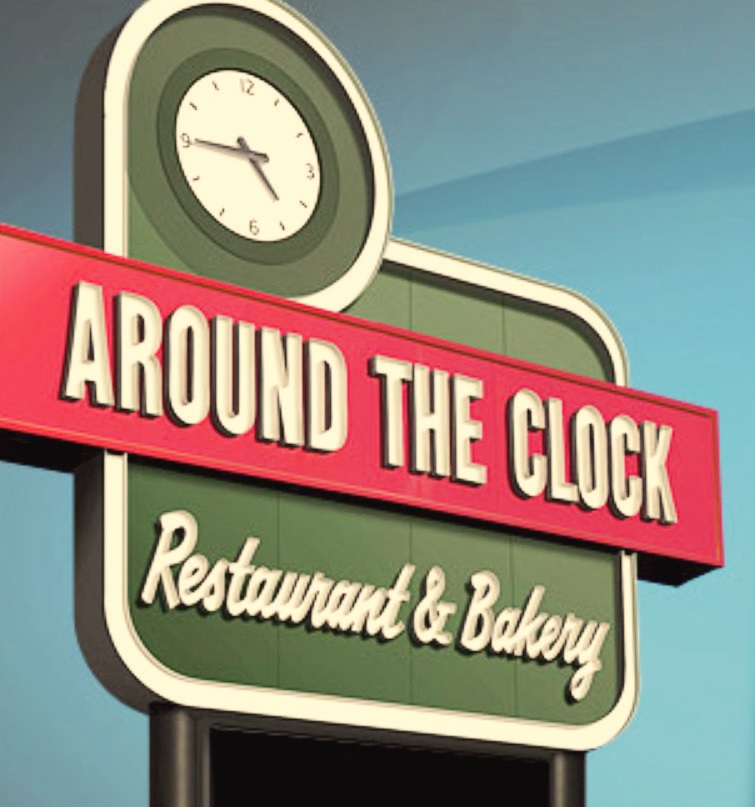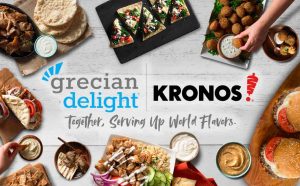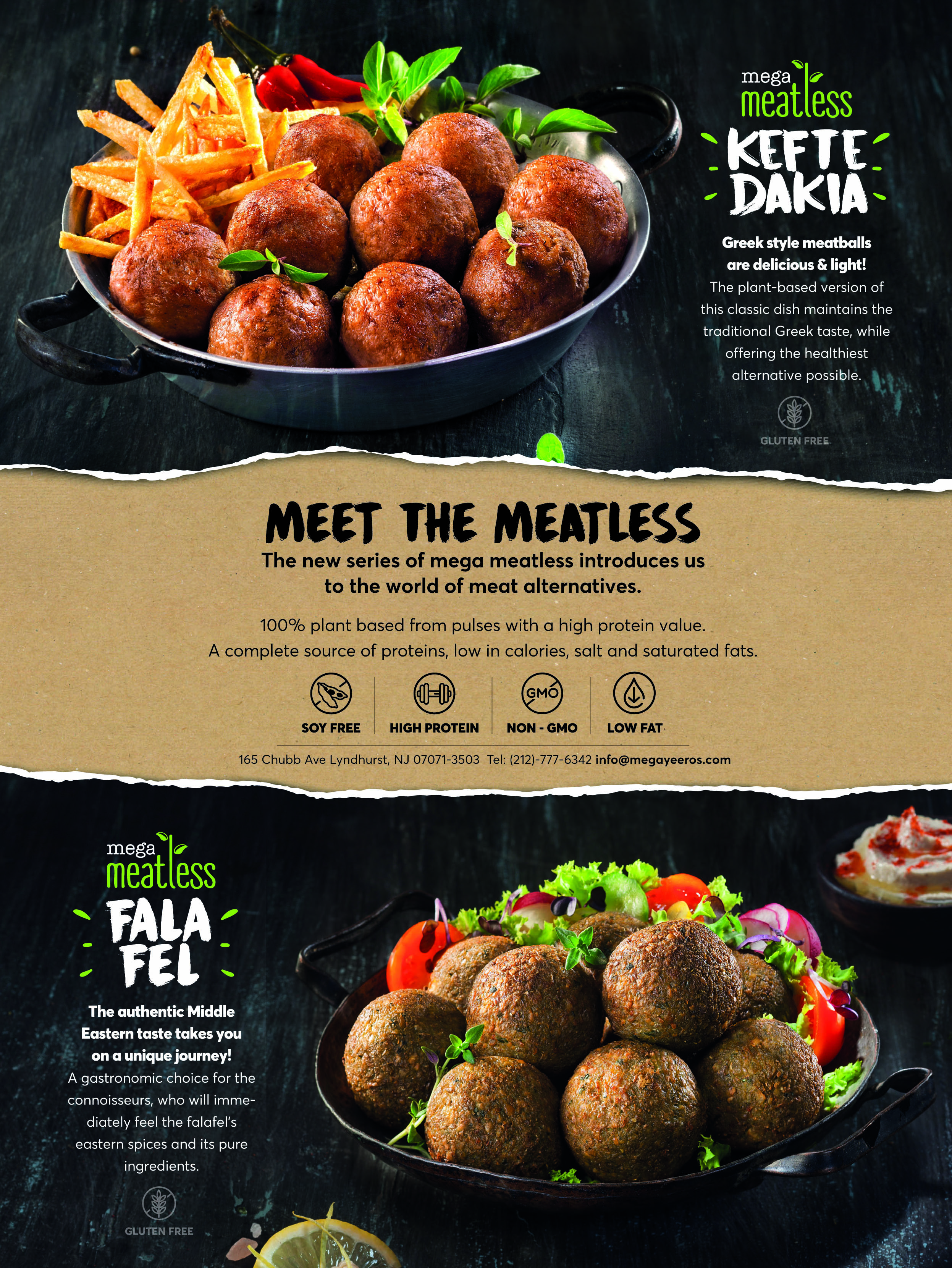Diner Chronicles
Posted by estiator at 10 October, at 07 : 16 AM Print
COVER STORY
After a perilous year, owners finally look forward.
By Michael Kaminer
What a difference a year makes. In August 2020, Estiator profiled three diner owners whose businesses faced existential threats from the pandemic. Today, as vaccines gain ground, in-room dining returns, and customers tiptoe back, diner owners can finally focus on the future. Estiator checked in with two of our subjects from 2020, and asked other diner stalwarts to share their stories.
Spiro Hadjiyerou

Colonial Diner
colonialdiner.com
East Brunswick, NJ
SPIRO HADJIYEROU has owned New Jersey’s Colonial Diner for more than a decade; the diner itself dates back a half-century.“Most of my people have been with me for 10 years. We treat staff like family, and our staff treats customers like family,” he told Estiator last year. Hadjiyerou serves on the board of the New Jersey Restaurant Association.
I actually thought things would be worse right now. The way our governor was talking, it sounded like we wouldn’t get to 100% until after summer. But we ended up there after Memorial Day weekend. With the vaccine, that changed.
Orders to go are still picking up, though. We’re at 25% now. I got very upset with UberEats and GrubHub, which raised fees from 30% to 32% at the worst moment. We pay credit card commissions, too. I said no to them, and struck a deal with DoorDash, with fees at 20%. I’m happy with that. We’re doing about 70 to 80 DoorDash orders a week, or about $3,000 weekly.
Severe front-of-house staffing issues have forced us to cut back hours. We’ve had to adjust our menus. We had to take off some fish and chicken dishes, and simplify everything for the kitchen overall—we used to have five guys on the line, and now have three. Eggs and omelets are profitable. Fish and seafood, not so much. We charge $21 for a fish dish, and people get mad, but it costs us $14.
The other big issue has been our supply lines, which are totally disrupted. There was a moment where 60 out of 100 US Foods drivers were out with Covid. Even to this day, the Syscos, US Foods, and Performance Food Groups don’t have drivers. You just get an email informing you you’re not getting a delivery today.
Our customers, however, have been awesome, awesome, awesome. They’re overtipping, generous, and leaving cash tips. A small percentage is making comments online like, “I ordered chicken wings and I couldn’t get them.” There were weeks when chicken wings were just out of stock, no matter who you talked to. Most people understood, but some complained that we had a “reduced menu.” One guy wrote a bad review because we weren’t open our usual hours. We’d posted the revised schedule everywhere on social media, and on our door. I messaged him privately, and his response was, “I’m used to coming in at this hour.” He just didn’t care. Luckily, people like him are a tiny minority.
I also lead the Delaware Valley Purchasing Group, a co-op with nearly 2,000 members. Only about a third of us got money from the [Small Business Association’s] Restaurant Revitalization Fund. People are holding on by their last strings, hoping it gets refunded. If that doesn’t happen, you’re going to see 10 to 15% of restaurants that made it this far go out of business.
Bill Kanelopoulos
Athenian Diner
athenian-sharonville.com
Sharonville, OH
AFTER IMMIGRATING from Greece and toiling in the restaurant business, John Kanelopoulos and partner George Tsuturas opened the Athenian Diner in 1976. Now under the ownership of John’s son, Bill Kanelopoulos, the Athenian remains a beloved fixture in Sharonville, about 13 miles north of downtown Cincinnati. House-made gyros and double-decker sandwiches are signatures. Bill’s wife, Katy, is the small-business liaison for the city of Sharonville.
Things pretty much seem back to normal. People are eating indoors again, though we’re still doing a lot of carryout. We more or less kept the same menu through the pandemic. So we’re not really “going back” to anything—just doing what we had always been doing.
Unlike some restaurants, we haven’t had issues with staffing. We’re a smaller mom-and-pop, and we managed to keep all of our employees. They worked through everything; they just didn’t work as much. We had two servers on most weekdays, and then it became one. A major help was grants. We used them to help pay my employees, and even gave a little extra to help keep them. My wife [Katy Kanelopoulos] is the small-business liaison for the city of Sharonville, so she helped us find whatever aid was available. The hardest part is just filling out all the forms.

Our costs are going up, though. And every other week, it seems suppliers are informing us about a shortage of something else— bacon one week, red meat another week. Last week it was onion rings—go figure. Prices are higher, and there are more limited amounts, so that’s an issue. I’m now wondering if I should raise prices.
We’ve been in the same location from day one, and we’ve had regulars from day one. They showed up through the pandemic, and their support was tremendously helpful. And the people from my church came through for us as well.
Andreas Koutsoudakis, Jr.
Tribeca’s Kitchen
tribecaskitchen.com
New York, NY

ANDY KOUTSOUDAKIS opened Tribeca’s Kitchen in February 2021. But the restaurant’s debut was more of a homecoming. His father, Andy Koutsoudakis Sr., originally opened Tribeca’s Kitchen in 2014; complications from Covid-19 claimed the elder Koutsoudakis’ life in 2020. His son doubled down on the restaurant, the neighborhood, and the clientele, reinventing Tribeca’s Kitchen with new decor, a celebrated chef, and an elevated menu. A high-profile employment attorney, Koutsoudakis Jr. has also been active in the fight against predatory fees imposed by third-party delivery services.
We’ve been focused on what our future looks like, our brand, our menu. Business is still nowhere near where it’s supposed to be. A major issue is that a lot of companies are postponing the return to work. Some were supposed to come back on October 1. They’ve pushed it back to the end of the year, possibly longer. These things are damaging. With the variants, businesses are stuck in place.
We stayed the course with our menus, which are ambitious. I have amazing chefs from Michelin-starred restaurants, and I’m bringing an incredible new Greek chef on board. We’re going all in with some major changes this year.
One of the biggest problems is that suppliers are nervous, and justifiably so. They’re offering less of an extension of credit than you used to have. There’s a shorter turnaround time in terms of payment cycles. There are changes in order-submission times as well. US Foods reduced it from 3pm to noon or 1pm.
There’s been no scarcity of products for us, because we use fresh everything, and don’t order a lot of those items in quantity. But if some diner owners can’t get bacon, maybe that’s a good sign—they’re selling a lot of it.
As far as staffing, it’s about the work environment, your purpose, your mission, and how organized you are. There are still people out there who love our industry. There are places that truly care about their food and beverage programs. They want to teach, and the employees want to learn. New York State is not filling in the extra supplemental [unemployment-benefit] amount that ended on Labor Day, which is a good thing.
Along with reopening Tribeca’s Kitchen, one of my proudest achievements this year was getting permanent legislation passed around third-party delivery. Fees are now capped at 15% for delivery orders and 5% for fees around marketing and other services.
My message for everyone in New York and the Northeast is to keep pushing through. Keep the Greek in you alive.
[Editor’s note: At press time, a coalition of delivery-app companies had filed a lawsuit to overturn caps on fees.]
Deno Neofotistos
Main Street Diner
mainstreetdinergc.com
Grove City, PA
“OPENED BY GREEK immigrants and passed down to a second generation, we are a family-owned and operated classic American restaurant with a decidedly Greek touch,” reads the website for Pennsylvania’s Main Street Diner. Indeed, Deno Neofotistos took over the restaurant eight years ago from his father, Vasilios, who bought it in 1996. Along with the diner, Neofotistos co-owns Bakluva (bakluva.com), which sells baklava—from his mother’s recipe—on platforms like Amazon.
We’re situated in a small college town in western Pennsylvania. The state government shut us down in March 2020, just before Pascha. It was tough sledding. But as restaurants reopened in July and August, business picked up quickly. People were really eager to get out and eat out.
The main difficulty for us lately has been sourcing product. There are things we’ve been serving for years that we can no longer get—things as trivial as cheese sticks. Suppliers have decided to cut them or cease production. I’ve had to bring another supplier on board. Food costs are exploding, too. But customers have been ultra-supportive.
Staffing has been another issue. It’s been impossible to the point where we no longer have a Saturday dinner service. We used to stay open until 8; now we close at 3pm on Saturdays.
We just cut service with DoorDash, which we’d been using through the pandemic. We did delivery ourselves at the outset, but it wasn’t tenable. DoorDash threw us a bit of a lifeline early on, but they charge 25%, and to me that’s predatory. Some customers were disappointed, but I don’t know how any restaurant manages it aside from big chains that get special deals.

Our menu has been relatively stable. We also do a monthly Greek night that’s become huge. When I came into the business eight years ago, I realized the local community was starved of ethnic food. Greek food is what helped turn the business around and win new customers.
I’m fortunate that I have plenty of help from my family to keep the place humming. My mother still comes in. My sister comes in. My brother, who’s not in the business, cofounded Bakluva with me. Without them, we wouldn’t have been able to keep going.
John Velisaris
Ritter’s Diner
Pittsburgh, PA
rittersdinerpittsburgh.com

A PITTSBURGH institution for 70 years, Ritter’s Diner is co-owned by John Velisaris, whose father and uncles bought the restaurant in 1966. Ritter’s has occupied its current home, in the Bloomfield neighborhood, since 1975.
We’re actually doing better than I thought we’d be doing. Customers are coming back, and they’re comfortable eating indoors. It’s been cool to see faces we haven’t seen in so long.
Our main issues have been shortages and pricing. We’re just coming off a shortage of chicken wings, for example. Now that situation is OK, but there’s a shortage of fried chicken. Suppliers have just stopped producing certain things. And prices of other provisions, like bacon, are going up. Prices have also climbed for things like paper supplies and takeout containers. We’re trying different options and different brands.
We increased menu prices a little during Covid. And recently, when we reprinted our menus, we decided to stick with those increased prices. It’s a catch-22. You don’t know if prices are going to come down, so you can’t plan.
After the pandemic, when we reopened, we didn’t resume our night shift because of staffing issues. Normally, we’re open 24 hours on weekends. You want to take care of the customers—that’s what it comes down to. We haven’t had issues with kitchen staff, though we could always use another cook. Waitstaff has been the issue.
A lot of customers became GrubHub regulars through the pandemic, so we’ve kept that relationship. But by no means do they give us a good deal. We had some customers order from GrubHub and pick up the orders themselves. We told them to just call us directly and cut out the middleman. I don’t think customers are aware of the fees we pay for third-party delivery.
The delivery-app drivers have also been an issue. They can get irate and aggressive if orders aren’t ready. They walk in and act like they should get taken care of immediately; they think they know the business better than we do. Guess what? You take care of your in-house customers first.
Am I optimistic? Well, I hope there’s no more closures. I watch the news, and I’m seeing Covid taking over again. Hospitalizations are up, too. I have no problems with mask mandates. But closures? I hope and pray it doesn’t happen again.
Steve Theofanous
Around the Clock Restaurant & Bakery
aroundtheclockrestaurant.com
Crystal Lake, IL
WITH HIS BROTHER, Fano, Steve Theofanous owns Around the Clock, which their father opened in 1975. At the time, Around the Clock was one of the few 24-hour options in what was then a rural area. The restaurant has expanded as the region got more populated; its bakery, with house-made cookies, pies, and pastries, is legendary. Theofanous also leads the Illinois-based Greek-American Restaurant Association Cooperative, the largest of its kind in the U.S.
Our business at Around the Clock is going as expected. Our customer counts are slightly lower than pre-Covid times for comparable months. But with increased pricing, our sales are about 10% higher during the same periods. We have noticed that customers are much more generous with tipping and more understanding and more patient when dealing with new employees.

Here in McHenry County, Illinois, about 50 miles northwest of Chicago, we have had a much easier time with indoor dining. Many customers who were once hesitant are returning after a long absence. Recently, we gave fully vaccinated customers and staff the option of making their own decision on masking.
For the most part, we have maintained our regular menu throughout the pandemic. We eliminated our discounted price menu that was offered on weekdays pre-Covid. All of our menu items are full-price at all times. We had two price increases since Covid began, averaging about 10% each time. Some items, like steaks, have been raised as much as 20 to 30%. We eliminated skirt steak and veal cutlet from our menu because the costs on those items have skyrocketed.
We are extremely pleased with the amount of takeout that is now part of our business. It’s now at about 20% of our total sales, up from 5 to 7% pre-Covid. About 80% of our takeout sales come from third-party platforms such as DoorDash and Uber Eats. There are many times, especially on the weekends, when we have to put our to-go business on pause so we can maintain the quality of service to our indoor-dining guests.
Customers are willing to pay a higher price for a quality product. A common mistake many operators make when costs go up is to cut corners. Operators will buy lower-quality products and serve smaller portions, which affects quality in a negative way. They’ll cut staff, which effects the service, cleanliness, and overall ambiance of the operation.
One of the greatest challenges our restaurant is facing these days is staffing—servers, especially. As a result, we are investing time and resources in hiring high school students who have no previous restaurant experience. Our philosophy is that we can teach good, motivated people to do tasks. As long as they enjoy being around people, serving people, and getting along with others, we can teach them the menu, the food, and all the rest.
My advice for other owners and operators is very simple: Step up your game in every area. Make your guests feel safe, and make every effort to win their trust in your restaurant.
















